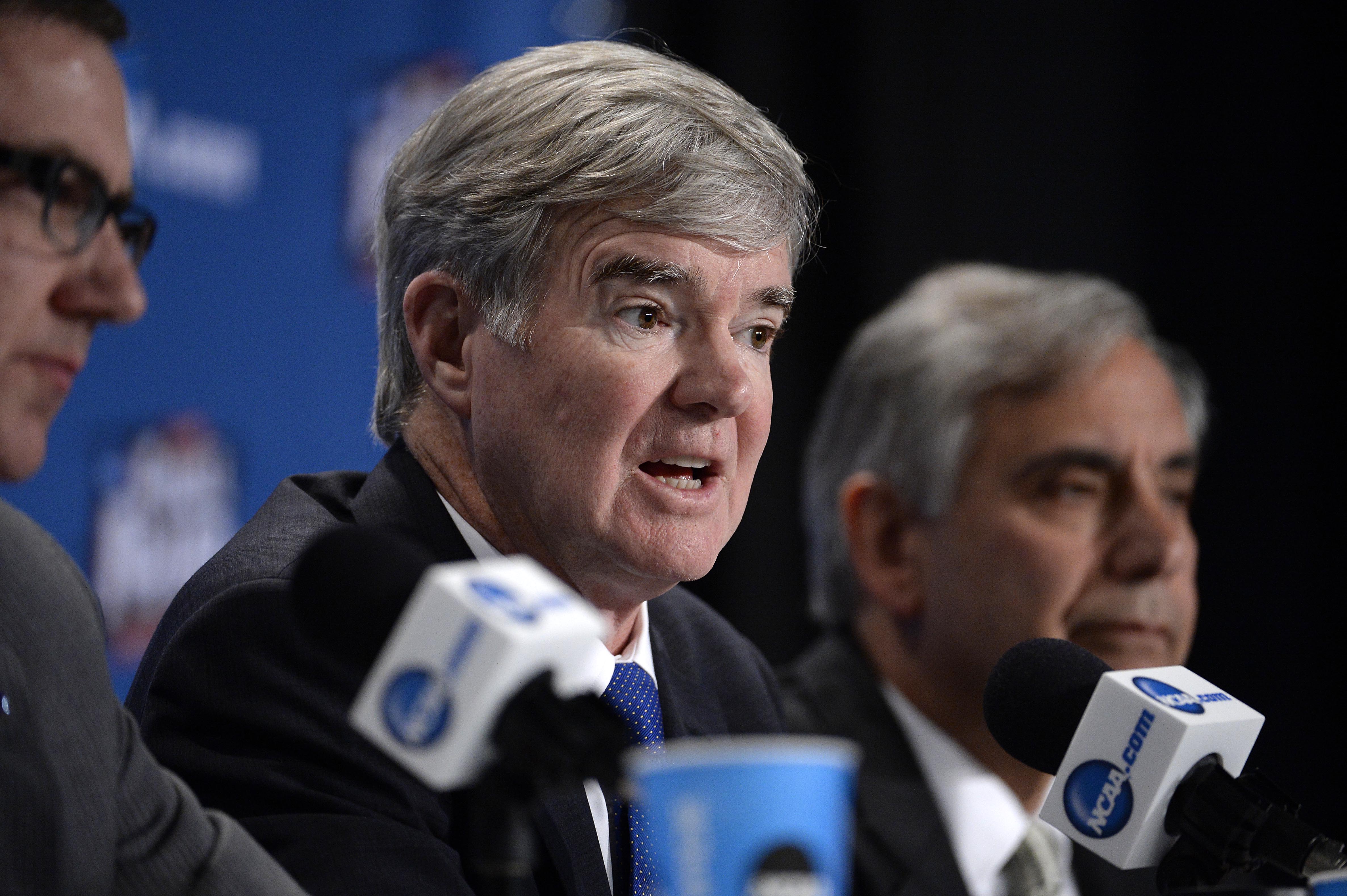![USP NCAA BASKETBALL: NCAA PRESIDENT MARK EMMERT-PR S BKC USA IN[ID=70844382] ID=70844382](http://www.gannett-cdn.com/-mm-/3a2f4657ce579f2e5f1a40ba1a0082d38fd342ec/c=525-0-4220-3158/local/-/media/2015/04/02/USATODAY/USATODAY/635635873612369706-USP-NCAA-BASKETBALL-NCAA-PRESIDENT-MARK-EMMERT-PR-72062834.JPG)
"I hope we don't find ourselves in that place," he said. "We hope they can resolve it quickly, not just because of this event but because it's an important issue to get the law right on and get it right fast."
The bill — known as the Religious Freedom Restoration Act — was signed into law by Gov. Mike Pence of Indiana during a private ceremony last week. It quickly drew the condemnation of local business and civic leaders, including the NCAA.
The NCAA was unable to land any reassurance that the law would not include any discriminatory aspects during conversations with Pence and state legislators, Emmert said. This fact was "completely inconsistent to all the things I know the (NCAA) membership values," he said.
"There really wasn't a lot to debate it further. We were quite clear about what it meant and what it didn't mean."
Earlier on Thursday, Republican lawmakers in Indiana announced a proposed new measure prohibiting the law from being used to discriminate on the basis of sexual orientation or gender identity.
"We are now awaiting the potential prevision of that bill," said Emmert. "It's a bill that creates an environment within which college athletics would find it very difficult to operate."
Emmert made it clear to the NCAA Board of Governors that the law stood antithetical to the message of the association, South Carolina president Harris Pastides said. "We were very proud of the way (Emmert) handled it."
Other matters discussed Thursday:
— The NCAA is pleased by the move toward governance reform and autonomy, Emmert said, adding that it was "heartening" to see major change occur during the past 18 months. "I think the NCAA has taken a very large step forward," said Pastides, a member of the Division I Board of Directors.
"But it's only a beginning," Pastides said. "I think we deserve the time to see how both governance reform and autonomy plays out. I can tell you from the side of the Southeastern Conference, it's not easy to figure it out completely. I can tell you that it's expensive."
— The amount of time athletics demands of student-athletes is on the NCAA's agenda moving forward, Emmert said.
"To be a successful Division I athlete and a successful student is a very demanding task. In some cases it's too demanding and we need to find ways to not just provide, but insist that they have more time to be students as well as student-athletes."
The NCAA needs to find a way to provide athletes "more time to be students as well as student-athletes," he said.
— Asked why the NCAA doesn't place sanctions on players who have committed acts of sexual assault, Emmert said "the first responsibility for student behavior that's not part of the competitive environment resides with campuses themselves."
Every university has a different set of protocols for handling matters related to discipline, he said, adding that the NCAA would step in when the governing body finds that a university treated a student-athlete in a different manner than it would a normal student.
"Then that is, in fact, an NCAA violation, and, in fact, the association gets involved in trying to determine what the ramifications of that behavior would be," Emmert said. It's not that the national rules don't have a policy about it, it's that they first and foremost reside with the campuses."


